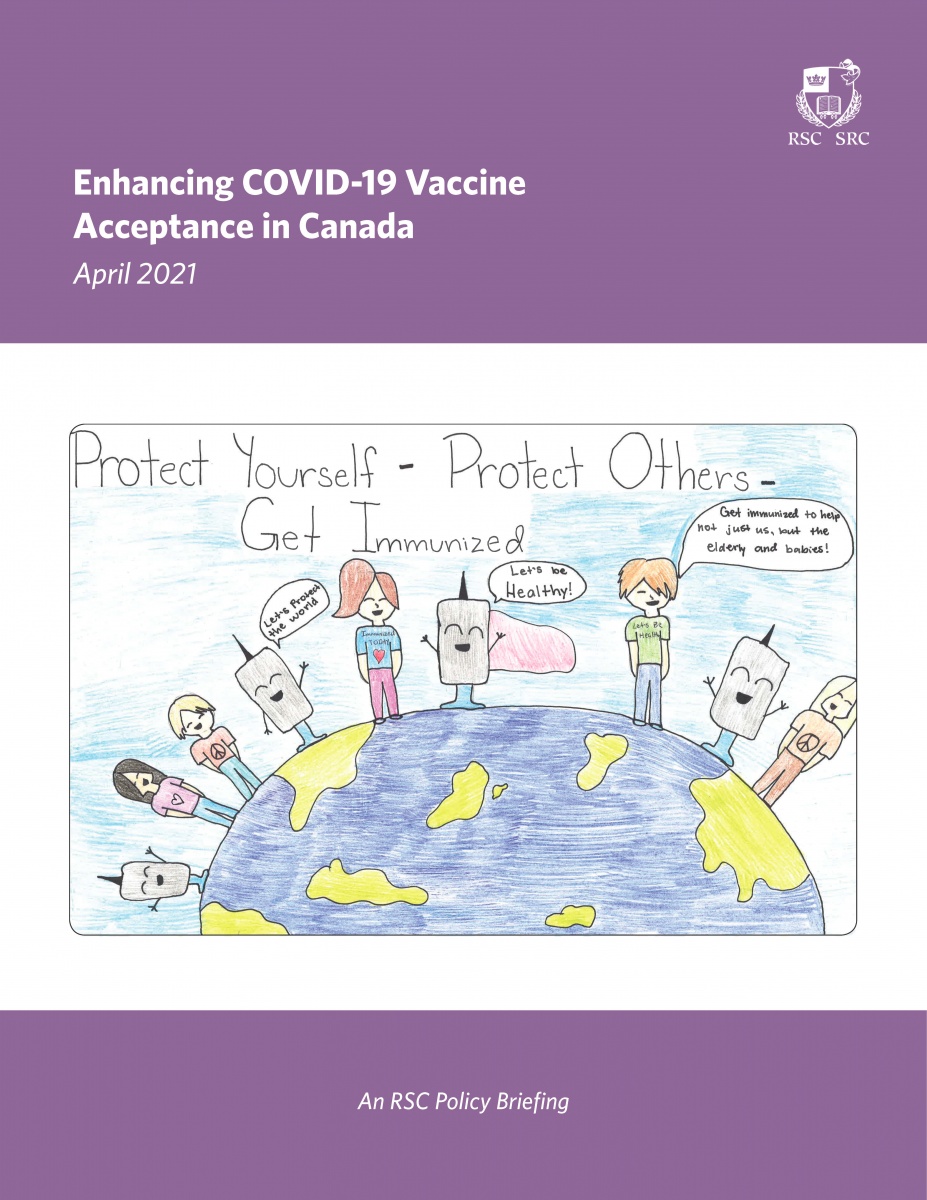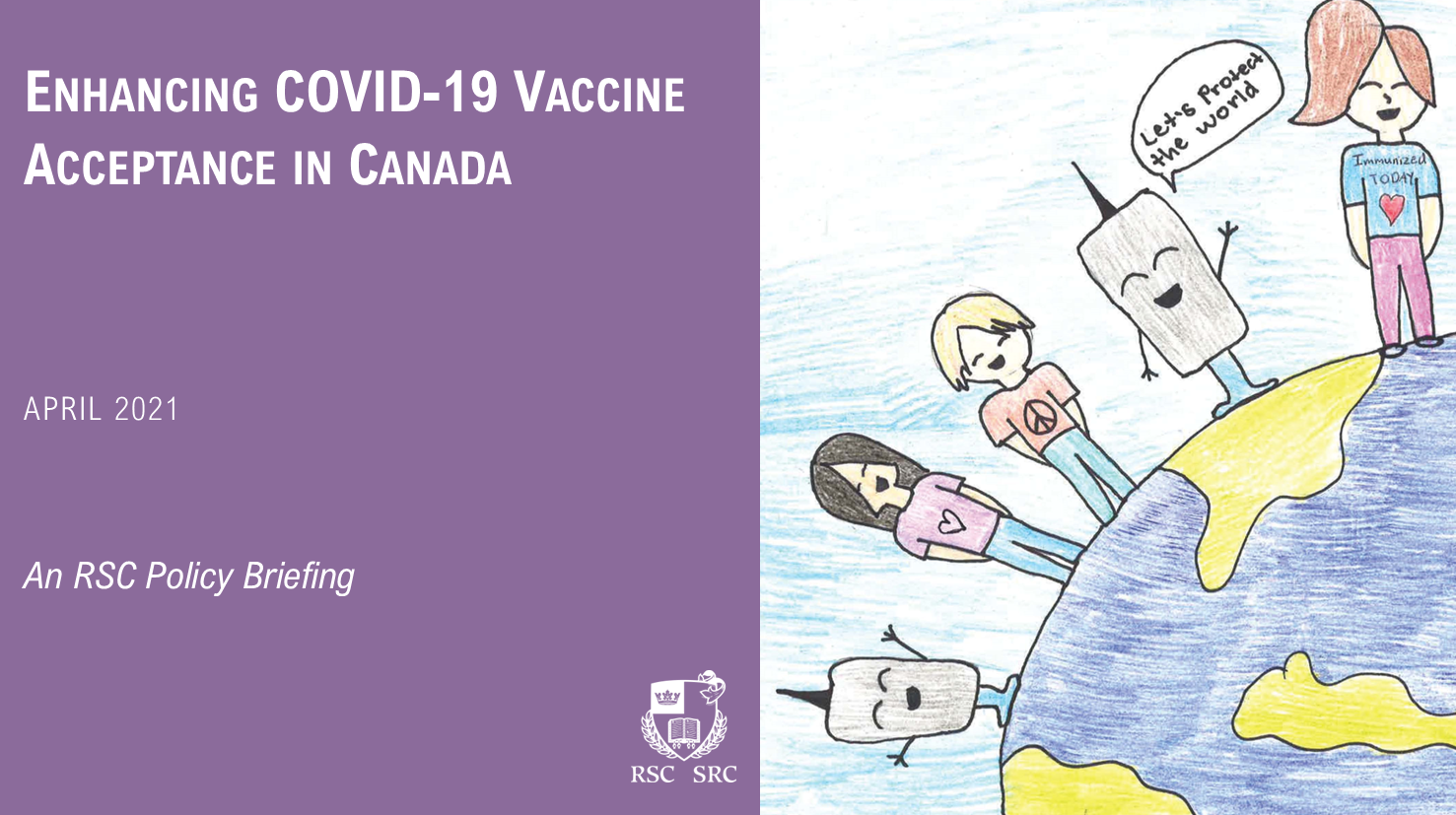 Established by the President of the Royal Society of Canada in April 2020, the RSC Task Force on COVID-19 was mandated to provide evidence-informed perspectives on major societal challenges in response to and recovery from COVID-19.
Established by the President of the Royal Society of Canada in April 2020, the RSC Task Force on COVID-19 was mandated to provide evidence-informed perspectives on major societal challenges in response to and recovery from COVID-19.
The Task Force established a series of Working Groups to rapidly develop Policy Briefings, with the objective of supporting policy makers with evidence to inform their decisions.
Overview of Enhancing COVID-19 Vaccine Acceptance in Canada
COVID-19 vaccine acceptance (the intent to receive a vaccine i.e. attitude not a behaviour) exists on a continuum ranging from a small minority of people who strongly oppose vaccination, through the heterogeneous ‘vaccine-hesitant’ or the ‘moveable middle’ group with varying levels of concern and uncertainty, to the majority who are willing to be vaccinated but may not turn their intention into action. However, vaccine acceptance varies over time as personal decisions may be influenced by many factors. These include (i) knowledge, attitudes, cultural and religious beliefs; (ii) the communication environment including social networks; (iii) the rate of COVID-19 in a community, and (iv) the organization of health and community services and policies. Therefore to engage and empower people to make informed choices about COVID-19 vaccines, we need carefully designed interventions tailored to community needs and concerns that build trust in health authorities and those delivering vaccines, as well as promote acceptance.
Authors of the Report
Jeannette Comeau, Division of Infectious Diseases, Assistant Professor, Subspecialty Program Director (Infectious Diseases), Dalhousie University
Ève Dubé, Scientific Group on Immunization at the Quebec National Institute of Public Health; Department of Anthropology, Université Laval
Janice Graham, Professor, Department of Pediatrics, Division of Infectious Diseases, Dalhousie University
Margo Greenwood, School of Education; Department of First Nations Studies, University of Northern British Columbia; Academic Leader, National Collaborating Centre for Indigenous Health
Shawn Harmon, Department of Pediatrics, Technoscience and Regulation Research Unit, Dalhousie University
Noni E. MacDonald (Chair), Professor, Department of Pediatrics (Infectious Diseases), Faculty of Medicine, Dalhousie University
Janet McElhaney, Medical Sciences Division, Northern Ontario School of Medicine; Vice President of Research & Scientific Director, Health Sciences North Research Institute C.
Meghan McMurtry, Directory, Pediatric Pain, Health and Communication Lab (PPHC); Associate Professor, Department of Psychology, University of Guelph; Clinical and Health Psychologist with the Pediatric Chronic Pain Program, McMaster Children’s Hospital
Alan Middleton, Distinguished Adjunct Professor of Marketing; Former Executive Director of Schulich Executive Education Centre; York University
Audrey Steenbeek, Professor, School of Nursing, Faculty of Health, Dalhousie University
Anna Taddio, Professor, Clinical Pharmacy Research, Leslie Dan Faculty of Pharmacy, University of Toronto
For further information or for media requests, contact Erika Kujawski at ekujawski@rsc-src.ca.
This report has also been published in the FACETS collection of RSC Policy Briefings. The report is available here.


